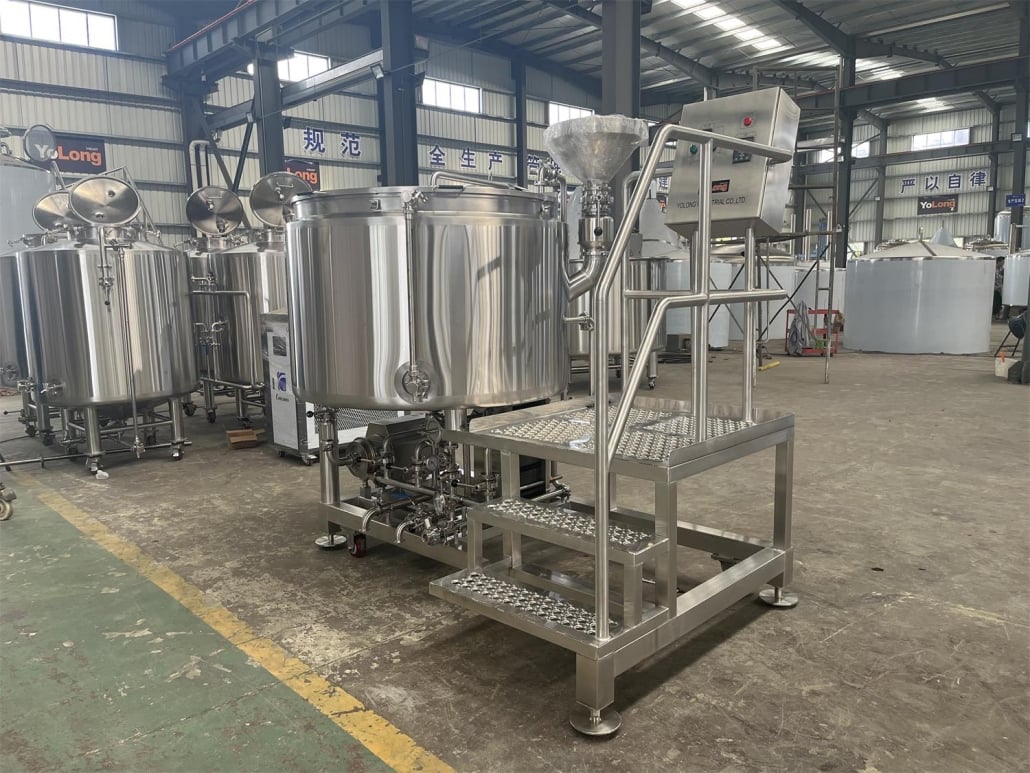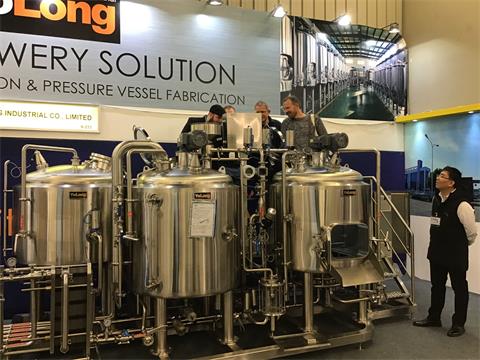Stainless Tanks for Sale: Buying, Inspecting, and Maintaining
Introduction
If you’re in the market for reliable and durable storage solutions, stainless tanks for sale should be at the top of your list. These versatile containers are widely used across various industries for their exceptional properties and ability to handle a wide range of substances. In this guide, we will explore stainless tanks for sale, their advantages, applications, types, factors to consider when purchasing, how to find them for sale, tips for inspecting used tanks, and maintenance guidelines.
Understanding stainless tanks for sale
stainless tanks for sale, also known as stainless steel tanks, are containers made from high-grade stainless steel. This alloy contains a mix of iron, chromium, and other elements that give it exceptional resistance to corrosion, heat, and chemical damage. As a result, stainless tanks are highly durable, ensuring the safe storage of liquids and solids over extended periods.

Advantages of Stainless Tanks
stainless tanks for sale offer numerous advantages, making them a popular choice in various industries. Some of the key benefits include:
- Superior Corrosion Resistance
- Hygienic and Easy to Clean
- High Strength and Durability
- Versatility in Applications
- Aesthetically Pleasing
- Environmentally Friendly
Applications of Stainless Tanks
Stainless tanks find applications in diverse industries due to their impressive properties. Let’s explore some of the sectors that extensively use these tanks:
Food and Beverage Industry
The food and beverage industry relies heavily on stainless tanks for storing ingredients, processing liquids, and packaging products. These tanks maintain product quality and hygiene, essential for food and beverage production.
Pharmaceutical Industry
In the pharmaceutical sector, stainless tanks are crucial for storing sensitive drugs, chemicals, and raw materials. They meet strict regulatory standards and prevent contamination.
Chemical Industry
Chemical manufacturers utilize stainless tanks for sale to store hazardous chemicals safely. The tanks’ corrosion-resistant properties prevent leaks and ensure workplace safety.
Brewing Industry
In breweries, stainless tanks for sale are used for fermentation, aging, and storage of various beverages like beer, wine, and spirits. The non-reactive nature of stainless steel preserves the flavor and purity of the beverages.
Water Treatment
Stainless tanks play a vital role in water treatment facilities by storing clean water and treating wastewater. Their durability and corrosion resistance make them ideal for this application.
Types of Stainless Tanks
Stainless tanks come in various designs to meet specific industrial requirements. Some common types of stainless tanks for sale include:
Stainless Steel Mixing Tanks
Mixing tanks are equipped with agitators for blending liquids or suspending solids. They are used in chemical processing and various mixing applications.
Stainless Steel Storage Tanks
Storage tanks are designed to hold large quantities of liquids or solids, making them ideal for long-term storage of raw materials or finished products.
Fermentation Tanks
Fermentation tanks are specially designed for the brewing industry, where they facilitate the fermentation process, crucial in beer and wine production.
Jacketed Tanks
Jacketed tanks have an additional layer for temperature control, making them suitable for processes that require heating or cooling.
Process Tanks
Process tanks serve multiple purposes in manufacturing and processing industries, providing storage, mixing, and other functions as needed.
Factors to Consider When Buying Stainless Tanks
When purchasing stainless tanks for sale, several essential factors must be taken into account:
Capacity
Determine the required tank capacity based on your production needs and available space.
Material Grade
Choose the right stainless steel grade based on the type of material to be stored and the tank’s intended application.
Design and Construction
Consider factors like tank shape, fittings, and reinforcement to ensure optimal performance.
Cost
Balance your budget with the tank’s quality and features to get the best value for your investment.
Customization Options
Some suppliers offer customizable tanks, allowing you to tailor the tank to your specific needs.
How to Find Stainless Tanks for Sale
Finding stainless tanks for sale can be a straightforward process with various options to explore:
Online Marketplaces
E-commerce platforms often host a wide range of stainless tanks for sale offered by different sellers.
Industrial Suppliers
Industrial equipment suppliers specialize in providing tanks for various industries.
Trade Shows and Exhibitions
Attending industry-related events can lead to valuable connections with tank suppliers.
Local Classifieds
Check local classified ads or websites for potential second-hand tank deals.
Direct from Manufacturers
Contact manufacturers directly to inquire about their product offerings and get competitive prices.
Tips for Inspecting Used Stainless Tanks
If you opt for used stainless tanks for sale, it’s essential to inspect them thoroughly before making a purchase:
Check for Leaks or Corrosion
Look for signs of leaks or corrosion, as these can compromise the tank’s integrity.
Examine Welds and Joints
Ensure that welds and joints are well-made and show no signs of damage.
Inspect Valves and Fittings
Verify that valves and fittings are in good working condition.
Ask for Maintenance Records
Request maintenance records to understand the tank’s history and upkeep.
Request a Pressure Test
Ask the seller to perform a pressure test to check for any potential weak points or vulnerabilities in the tank’s structure.
Maintenance and Care of Stainless Tanks
Proper maintenance is crucial to ensure the longevity and optimal performance of stainless tanks for sale. Here are some essential maintenance tips:
Regular Cleaning
Clean the tank regularly to remove any residue, buildup, or contaminants that may affect product quality.
Proper Sanitization
In industries like food and pharmaceuticals, sanitization is vital to prevent contamination and maintain hygiene.
Preventing Corrosion
Use appropriate cleaning agents and protective coatings to prevent corrosion and rust formation.
Temperature and Humidity Control
Control the tank’s environment to avoid extreme temperatures or humidity levels that may cause damage.
Inspection and Repairs
Regularly inspect the tank for any signs of wear, damage, or potential issues, and address repairs promptly.
Conclusion
Stainless tanks are indispensable assets in numerous industries, offering superior corrosion resistance, durability, and versatility. They play a critical role in storing various liquids and solids safely, ensuring product quality and regulatory compliance. When purchasing stainless tanks, consider factors like capacity, material grade, design, and cost. You can find them for sale through online marketplaces, industrial suppliers, trade shows, local classifieds, and directly from manufacturers. If opting for used tanks, be thorough in your inspection to ensure their integrity and usability. Proper maintenance and care are essential for extending the life of stainless tanks and preserving their efficiency.
FAQs
Q1: Are stainless tanks suitable for storing acidic substances?
Yes, stainless tanks are highly resistant to corrosion, making them suitable for storing acidic substances and other corrosive materials.
Q2: Can stainless tanks be used for outdoor storage?
Yes, stainless tanks can be used for outdoor storage as they are resistant to weather elements, but proper protection and maintenance are necessary to avoid damage.
Q3: Can stainless tanks be customized to specific shapes and sizes?
Yes, many suppliers offer customization options, allowing you to tailor the tank’s shape, size, and fittings to your specific needs.
Q4: How long can stainless tanks last with proper maintenance?
With proper maintenance and care, stainless tanks for sale can last for several decades, making them a long-term investment.
Q5: Can stainless tanks be used for both liquids and solids?
Yes, stainless tanks are versatile and can be used for storing both liquids and solids, making them ideal for various industrial applications.
Share this entry
Interested in learning more about Brewing Systems including additional details and pricing information? Please use the form below to contact us!
YOLONG BREWERY EQUIPMENT FAQS
- Commercial Brewery / Craft Brewery / Microbrewery / Nanobrewery
- What is The Difference Between Craft Beer and Industrial Beer?
- The Bespoke Differences In Custom Brewing Systems
- Everything You Need to Know About Kettle Souring
- How to Choose Brewing Equipment for Your business?
- How To Choose The-Best Partner To Build Your Commercial Microbrewing System?
- Two Detection Sensors That You Need To Use In Your Brewhouse System
- Remote Control Applications in Brewing Equipment/How does it work?
- How To Clean Your Brand New Brewery Tanks?

